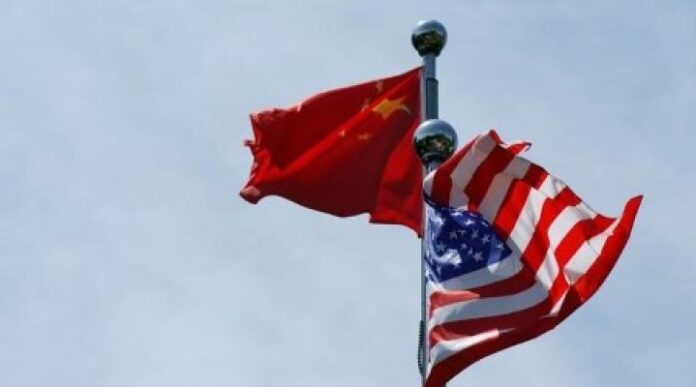SYDNEY: The United States has warned Pacific island nations about security threats posed by a Chinese company’s cut-price bid to build an undersea internet cable, two sources told Reuters, part of an international development project in the region.
Huawei Marine, which was recently divested from Huawei Technologies Co Ltd and is now majority-owned by another Chinese firm, submitted bids along with French-headquartered Alcatel Submarine Networks (ASN), part of Finland’s Nokia, and Japan’s NEC, for the $72.6 million project backed by the World Bank and Asian Development Bank (ADB), the sources with direct knowledge of the project details said.
The project is designed to improve communications to the island nations of Nauru, Federated States of Micronesia (FSM) and Kiribati.
Washington sent a diplomatic note to FSM in July expressing strategic concerns about the project as Huawei Marine and other Chinese firms are required to co-operate with Beijing’s intelligence and security services, the sources said.
That note followed an earlier warning to Micronesia and development agencies from the Nauru government, a Pacific ally to Taiwan, which is viewed by China as a renegade province, about Huawei Marine’s participation in the project, the sources said.
The FSM government told Reuters in a statement it is talking to bilateral partners in the project, “some of whom have addressed a need to ensure that the cable does not compromise regional security by opening, or failing to close, cyber-security related gaps.”
Under the Compact of Free Association, a decades-old agreement between the United States and its former Pacific trust territories, Washington is responsible for FSM’s defence.
A spokeswoman for the Nauru government said bids were being examined and that stakeholders were addressing “technical and administrative issues” to ensure the project progresses, without elaborating.
The U.S. State Department’s Bureau of East Asian and Pacific Affairs did not respond to requests for comment.
The third island nation involved in the project, Kiribati, views Huawei Marine’s bid most favourably after last year severing diplomatic ties with Taiwan in favour of China, the sources said.
The Kiribati government did not respond to questions.
A World Bank spokesman said the tender was continuing and could not “provide specific comments on the process at this time.” The ADB referred questions to the World Bank.
Undersea cables, which have far greater data capacity than satellites, have emerged as a sensitive area of diplomacy in the Pacific, given their central role in international communications.
While the project, called the East Micronesia Cable project, could be split up, Huawei Marine’s bids in the procurement process are more than 20% below rivals, according to the two sources.
This has created an impasse, the sources said, given on a pure cost basis Huawei Marine is in a strong position to win the bid due to the terms overseen by the development agencies.
Typically, the countries involved in the project establish the bid assessment committees. The development agencies review the committee’s recommendations to ensure the selected bidder complies with the agencies’ policies and procedures.
The project is further complicated by its planned connection to the HANTRU-1 undersea cable, which is primarily used by the U.S. government and lands at Guam, a U.S. territory with substantial military assets.
SECURITY CONCERNS
Although Huawei Marine is now majority owned by Shanghai-listed Hengtong Optic-Electric Co Ltd, part of Hengtong Group, Washington continues to warn Pacific nations against using it to provide critical infrastructure.
Huawei Technologies Co Ltd, a global telecom equipment maker, has been subjected to repeated rounds of U.S. sanctions and allegations that its products could be used by Beijing for spying, a charge consistently denied by the Chinese company.
Huawei Marine and Hengtong did not respond to Reuters’ questions. A representative for Huawei Tech’s Pacific Island business said the cable project was not part of the business.
The U.S. Commerce Department publicly lists Huawei Marine on its so-called “Entity List” – known as a blacklist – which restricts the sale of U.S. goods and technology to the company. The Department did not immediately clarify whether the change in Huawei Marine’s ownership would mitigate this status.
Huawei Tech. Investment Co retains a small stake in Huawei Marine, company filings show.
In 2018, Australia largely paid for an undersea internet cable system for its Pacific neighbours, Papua New Guinea and Solomon Islands, shutting out rival plans from Huawei Marine, then majority-owned by Huawei Technologies.
Australia raised concerns at the time that the cable, with a landing point in Sydney, could pose a future security risk if it tapped into Australia’s communications network.
The Chinese foreign ministry did not immediately respond to a Reuters request for comment on Thursday.




